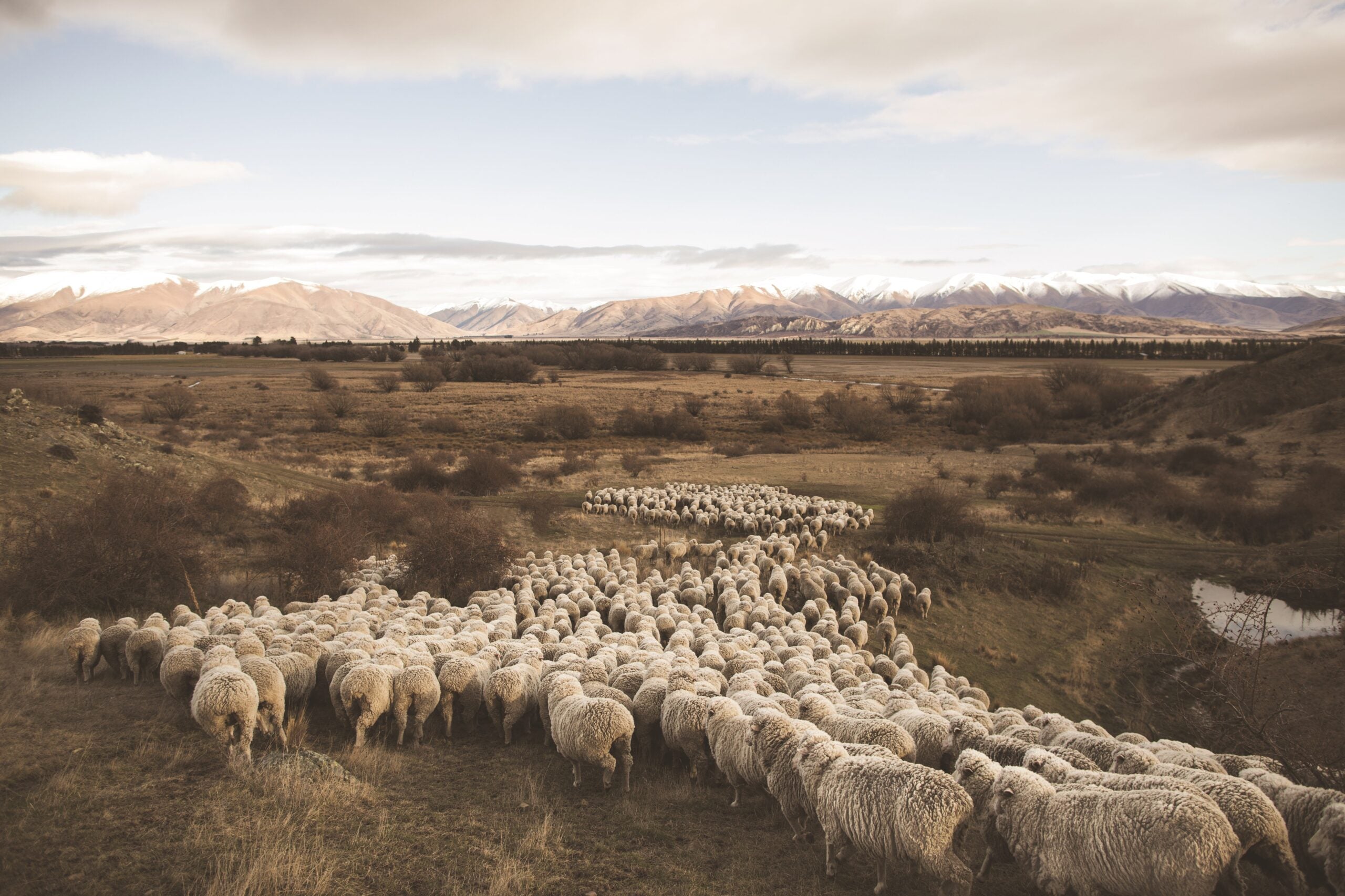To celebrate turning 25 last year, Icebreaker passed on the birthday blowout for itself and instead decided to throw a party for the planet.
The New Zealand-based global apparel brand decided it would honor the earth through an ongoing environmental campaign designed to eradicate synthetics from its entire collection within three years.
ŌĆ£Plastic Free by ŌĆś23ŌĆØ is the ambitious campaign that Icebreaker launched last fall, which is ramping up as 2021 gets underway.
Icebreaker, a subsidiary of VF Corp. since late 2017, is already known for its use of natural materials, notably merino wool, across its apparel line, with 87 percent of IcebreakerŌĆÖs collection composed of natural fibers. But the brand felt converting the remaining 13 percent to natural by 2023 was the right thing to doŌĆöfor its own brand ethos, for its customers, and for the earth.
To better understand why Icebreaker set this goal and how it plans to realize it, we spoke with Cameron Walker, the brandŌĆÖs general manager for North America. Walker, who is based in IcebreakerŌĆÖs North American headquarters in Denver, shared some of the reasoning behind ŌĆ£Plastic Free by ŌĆś23ŌĆØ and what it means for both the brand and its supply chain partners.
Why is Icebreaker undertaking this plastic-free goal, why now, and how do you get this done in three years?
At Icebreaker, we believe that nature has the answers, and we shouldnŌĆÖt need to seek out synthetic materials to make apparel. Twenty-five years ago, this brand was founded on the belief that there was a better way to make apparel. This began with natureŌĆÖs hero, merino wool, and we want to continue our move to natural, bringing consumers and the industry along with us. Taking on ŌĆ£Plastic Free by ŌĆÖ23ŌĆØ as a goal is an evolution of our brand and an indicator of whatŌĆÖs at the core of our DNA.

Why now? We know that a reliance on fibers derived from fossil fuels creates intrinsic environmental issues such as microfiber pollution, lasting plastic waste, and issues related to petrol extraction. Thirty-five percent of the microplastics in the ocean are from synthetic textiles. Merino degrades over time while synthetics and plastic just break into smaller pieces, continuing the cycle of pollution and environmental impact. This is about continuing to protect nature. We also know itŌĆÖs important to our consumer, the natural progressive, who cares about the impact the products they buy have on the world. They also are not willing to necessarily give up on performance. We know this consumer base has accelerated with Covid as people continue to seek out purpose-led and sustainability-driven brands.
When it comes to three years, this is a journey over time because our product team goes through each of our pieces and determines the best way to continue to get the performance we previously had using natural materials. ItŌĆÖs a process powered by us and partnersŌĆöwe work closely with yarn and material partners to explore natural alternatives to synthetic-based technologies.
What is VFŌĆÖs role in supporting this initiativeŌĆöstrategically, financially, and tacticallyŌĆörelative to Icebreaker’s effort?
VF has obviously been a champion of the work we are doing and helps to set standards and guidelines for us with the broader Made for Change initiative, driving toward science-based targets and helping to set standards for all brands around areas like materials. We are lucky to be part of a company that has such a strong focus on protecting the environment. Within the company, we also get access to a great central sustainability team that understands materials and sustainability. They act as a great partner for us and have existing relationships we can access.
So Icebreaker will no longer blend any polyester or spandex into products? What is the benefit for consumers (and the earth)?
Where we can, we are removing synthetics altogether from our fabrics. However, in those instances where we absolutely need to achieve certain properties like stretch or reinforcement, due to the need for our fabrics to perform at the highest level, sometimes we do need to keep certain types of fibers. For these cases, we are looking for alternative fibers that come from renewable sources, while still delivering the right performance for our fabrics.
Selecting these new types of fibers is a lengthy process since we do have a rigorous vetting process to make sure we choose solutions that have a lower environmental footprint. We work closely with fiber suppliers to understand the whole lifecycle of the fiber, from its original feedstock to the final spinning process, to assess if it is a candidate for our products. This is a challenging process as you can imagine, as this part of industry is limited. Partnership plays an instrumental role in not only the research portion but production and implementation as well.
So far, have you found a natural alternative to spandex that meets performance requirements?
We’re partnering to find solutions to tougher problems. In terms of solving that specific one, I can’t say at this point. ThatŌĆÖs our general answer on that front. Looking across the board with this initiative, some things exist, some don’t, but everything is on the table. The challenges is, there’s not an answer for everything. I come from a world working in technology where stretch goals are always there. What we’re trying to do is similar. WeŌĆÖve set a big goal thatŌĆÖs driven by our central team in New Zealand. They came up with this vision, and it’s exciting to be a part of something that youŌĆÖre trying to push further.
How are you also addressing polybags, packaging, and other plastic waste within the supply chain or the production, distribution, and selling processes?
Most of our packaging is already plastic free, using FSC-certified paper sources. We are now on a mission to eliminate the LDPE bags that we currently use to protect our garments during transit from factories to consumers. In our quest to find the most sustainable bag currently available on the market, we are about to trial a new FSC-certified paper bag which is all natural and curbside recyclable. We are also looking at what we do with our mailers as well and are encouraged by the fact that many new renewable options are becoming more readily available to brands and consumers.
You were a very early member of the Plastic Impact Alliance, co-founded by our editorial director, Kristin Hostetter, in 2019. Why was that an important group for you to join?
Three years ago, when Icebreaker wasnŌĆÖt part of VF, it was difficult to have impact without scale. You need to grow your brand to have that impact. Now that we have that amount of scale, it’s super important for everything that we’re doing from both an awareness and a sales perspective. The Plastic Impact Alliance is important, A) for impact, and B) for thought. The Alliance allows people to enact change and make a shared impact together. We try to leverage that wherever we can, and the Alliance allows us to do that while working with other brands.
What message do you want your retail partners to convey to consumers about this initiative?
Icebreaker is on a journey to be ŌĆ£Plastic Free by ŌĆÖ23.ŌĆØ Icebreaker wants to use our platform to educate people about the plastic problem and use our product to help drive toward a new solution in apparel. Supporting Icebreaker and our purpose helps protect nature while allowing consumers to wear a product that comes with all of the key performance benefits of merino.


